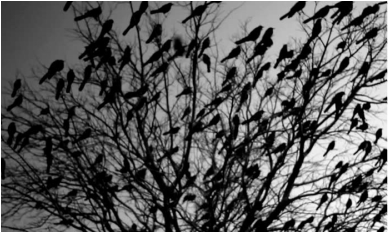I met Sophal at the Foreign Correspondents Club in Phnom Penh. We picked up our Angkor beers, and ambled through the scattered chairs to bar stools set at the long mahogany ledge by an open window overlooking the Tonle Sap river. It was almost sunset, and we sat for a moment in silence, observing the flow of river vendors and new refugees arriving in the wake of flooded ricelands.
We spoke of this: Cambodia's relentless poverty, the deluge of foreign aid, its possibilities, and we reminisced on old times in Oakland as the moon rose over the rippling water. He was Undersecretary in one of the Government ministries, and he talked about the heavy political burdens of his party, the temptations of a $50/month salary, his upcoming trip to Singapore, his family in Oakland. I plied him with questions about government corruption and exile. This was, after all, the purpose of my work--a focus on Cambodian Americans who have returned to work in the government and NGO in Phnom Penh.
Sophal and I had worked in Oakland together at a Cambodian-based organization, meeting with probation officers and chasing after errant boys of Oakland's killing streets. Oaktown Crips, they called their gang because blues were their colors, and Bloods were red. "Bloods, man, they the color of the Khmer Rouge." We were now in the land of the Rouge. "Imagine the Crips boys here?" I laughed, half serious. He didn't even turn at the question. "Those boys would not survive," he said. Our talk meandered after this through the exquisite promise and pain that trans-locations inflict. "I call my daughter each week,"he said. (I concealed my shock--at $5 per minute.) " I remind her to do her homework. She asked me if she could cut her hair. O.K., I said, but talk to your mother. Sometimes I am so lonely," he said, "that I play the karaoke and sing aloud--500 miles, songs like that." I nodded,500 miles was a popular song in Phnom Penh this fall. "I feel too American," he said, and then forgot himself. "Maybe I will run for office in Battambang in the next election." He is a big man in the Kingdom, with his cellular phone, Nisson Sentra, gucci gifts from friendly investors. In Oakland, we were small fry.
Sophal's precipitous ascent followed the rise of FUNCINPEC, the royalist party that he'd organized in California. When it won enough seats in the 1993 UNTAC-monitored election, it agreed to share power with the Communist party of Hun Sen. Sophal had been studying political science was at community college and looking for a better job to pay his many debts when the election promised him a future in Cambodia.
I was thinking all this as Sophal pointed out the promises that FUNCINPEC's Khmer French and Khmer Americans brought with them to government. Was I momentarily distracted by the one-eyed headlights of mototaxis in the pool of dark below us? I cannot remember, only that Sophal was saying, "-- and Lerb is dead." I looked up, startled, and ashamed to be startled, that once again, the living and dead of the U.S. Cambodian community ebbed away from me, ever the outsider. Lerb, dead.
He was my favorite bad boy; suspended from high school for an endless series of offenses, in juvenile detention for a year with extended probation afterwards. He was tall and very dark, strutting on the hottest of days in his black Raider's jacket and Crips colors. His junior league of "gangstas" would drop in during school hours when gang tensions were too high. He was charismatic, but he didn't know how to hold it, too vulnerable, too rageful. Lerb had survived the worst of his “gansta’s” tragedies: nine boys in a Chevette out of control on the freeway. Its toll--three dead (one decapitated), three unharmed (one flung from the car by the spirit of his dead father) and Lerb in a coma for weeks in the San Juaquin General Hospital.
Several times a week, I would pick up Lai Lanh, Lerb's mother in the most devastated of West Oakland projects for the hour drive to the hospital near Stockton. She would enter the hospital room briskly and coax him to life with Mormon prayers, tossing rice secretly over his listless shoulder. His recovery was excruciating and tedious. I do believe her tenacous, ferocious love drew him back into ordinary time with vague cognitive failures, but willing to live. When the worst was over, I lost touch with them as my own life gathered momentum.
Two weeks before his first accident, he stood at our office door and announced triumphantly that his mother's lost tribe of ten brothers and sisters were alive. She'd immediately sent money through a courier and received in return a videotape of a family gathered to pay their respects to the sister, the lucky one who made it to America. Sophal and Lerb are two signs of "luck," two survivors who tricked the fates once, then twice. But for Lerb, one time too many.
When I returned to Oakland from Phnom Penh, I asked casually about Lerb from other Cambodian-American friends. Don't you know, they said, vaguely accusing, the family left Oakland a year ago. Lerb was fishing with his brother. He stood up in the boat, fell over, and drowned.
A poet stops by a bare oak in the winter, “every limb sprouting” with starlings. She tries to count, and then estimate,
but the leaves of this wet black tree at the heart of
the storm--shiny--
river through limbs, back onto limbs,
scatter, blow away, scatter, recollect--
undoing again and again the tree without it ever ceasing to be
full.
Foliage of the tree of the world's waiting.
Of having waited a long time and
still having
to wait. Of trailing and screaming.
Of engulfed readjustments. Of blackness redisappearing
into
downdrafts of snow. Of indifference. Of indifferent
reappearings...
Jorie Graham from "The Dream of the Unified Field"
If there is a passion for a unified field, it is a tree whose leaves have a single sum: full and then empty. It has an apparent logic, this tree of the unified leaves, and the interlocutor is satisfied when its logic is unraveled and the problem has come to completion. Jorie Graham looks up and sees a tree of black starlings, always full and yet uncountable, static and heaving. One cannot apply logic to a koan, that is the koan's cunning. Of course there is a satisfaction in completion, but it ends to begin again. Completion's split second acts are summed up in motion; that itself is a koan. The tree is there and yet always in motion, waiting and arriving, reassembling, dissembling, reminding the poet and ourselves that living is never so unified, logical, clean. The birds of the world's waiting refuse to sit quietly while they're numbered and labeled. This is the koan of a tree and its poet. This is the way of territory and populations.
The arrival of this project is a task of logic and completion, but it has been a theological process for me because of its koan-like motion. It has been in these last four years a question that had no answer, hardly a question at all sometimes, and sometimes many questions darting in and out on the limbs of logic. It sputtered and repeated itself, the same words over and over. For months, I became inarticulate, unable to make the question speak. Only when I returned to the matter at hand, to the tree's interaction with its chattering leaves, did I find the matter waiting; "speak me," it said. The matter was a people who kept moving and how in their circling they trespassed fields of logic. How their reasonings about this were versatile and contradictory. How the tree held them and didn't, how though they sometimes moved in unison, it could not be predicted. How my own questions informed their reasoning; how reason in motion is a mystery.
In my earlier work I was interested with the subject position of Cambodians as refugees, whose political subjectivity change numerous times as they moved across borders from Kampuchea to Thailand and into the UNHCR refugee camps, then to Western nations as third world refugees. How did they collude in the manufacturing of their own identity? In Oakland, the majority of Cambodian refugees are part of the underclass community mediating the institutional cultures of welfare state. This is a particular form of cultural belonging, a cultural citizenship, in that the state creates its of cultural formations.
My first arrival in Phnom Penh had such elements: an encounter with ghosts in our hotel room, magic hair that gave me trouble. I fell prey to the magic of tragic Khmerness. My second visit to Phnom Penh was a great disappointment. Returning and local Cambodians interpreted human rights with a baffling tautology. Nothing seemed cultural about its logic. It took me a long time to realize that this surface resemblance was the koan and that magic was a lure for the prize of Khmerness which most of us in various stages of "return" were seeking.
I join the American "us" of Cambodian refugees returning, though the "us" of survivors is, I believe, incommensurable. That I can join the "return" at all is up for contestation, being neither refugee nor Cambodian nor Asian American. The mesmerizing power of return is mine nonetheless. Raised in Manila by progressive Protestant missionaries until my "return" to the US for college in the first months of Martial Law, my first conundrum was becoming American not as an exile but in situ. Multiculturalism found me a quandary. As one who had lived in the Philippines for as many years as hyphenated Americans had lived in the US, would I not be entitled to the category of American-Filipino if one existed? That it did not exist left me homogenous; that I was lesbian and Christian caused more confusions. On the whole, I became wary of identity categories. The return to the Philippines thirteen years later was a second discouragement. I arrived as an American "expat" on staff at the large Refugee Processing Center in an ESL program whose teachers were Filipino. This in itself offered up the bewilderment of cultural/national alliances and hierarchies (Vietnamese over Lao and Cambodian, Filipinos over SEA refugees, US over all, but sabotaged by Filipinos, Philippine military over UN). In the fifteen years surrounding that event my attention to refugees, exiles, and immigrants constantly rehearsed the crisis of arrival, integration, and the myths of national belonging.
The overlap of politics and culture and its conjunction with category mistakes has informed my theology, sense of self, and anthropology. It produces the questions I finally ask about multiple citizenships and national identities. It informs my skepticism of a hierarchical framework of ethics that places disobedient local "moralities" under the supervision of a principled "ethic." (Whose morality, which ethic?) It requires a perspective in which the observer, the subject and structure interact -- the poet, the birds and the tree, so to speak.
In the tree's trembling leaves, categories arrive and are forgotten. Someone sees the hand of God. Someone claims that this is the way of starlings. Someone calculates the rate of chaos. Someone forms a poem.


 RSS Feed
RSS Feed
